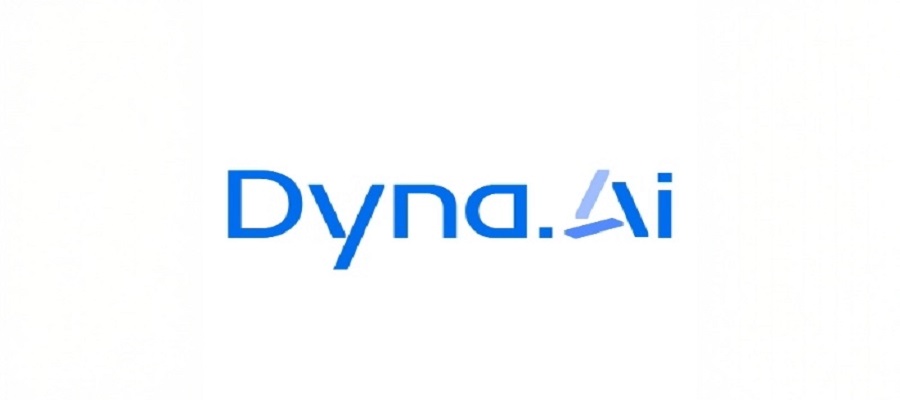E-Business
Cyberattacks: ‘56 Percent of Cases Stem from Existing Logins

A new report by Sophos, ybersecurity firm, has said that attackers primarily gained initial network access—56 per cent of all MDR and IR cases—by exploiting external remote services like firewalls and VPNs using valid credentials.

The 2025 Sophos Active Adversary Report details attacker behavior and techniques from over 400 Managed Detection and Response [MDR] and Incident Response [IR] cases in 2024.
According to the report, the combination of external remote services and valid accounts align with the top root causes of attacks.
For the second year in row, compromised credentials were the number one root cause of attacks [41% of cases]. This was followed by exploited vulnerabilities [21.79%] and brute force attacks [21.07%].
When analysing MDR and IR investigations, the Sophos X-Ops team looked specifically at ransomware, data exfiltration, and data extortion cases to identify how fast attackers progressed through the stages of an attack within an organisation.
In those three types of cases, the median time between the start of an attack and exfiltration was only 72.98 hours [3.04 days]. Furthermore, there was only a median of 2.7 hours from exfiltration to attack detection.
“Passive security is no longer enough. While prevention is essential, rapid response is critical. Organisations must actively monitor networks and act swiftly against observed telemetry.
Coordinated attacks by motivated adversaries require a coordinated defense. “For many organisations, that means combining business-specific knowledge with expert-led detection and response.
Our report confirms that organizations with proactive monitoring detect attacks faster and experience better outcomes,” said John Shier, field CISO.
The 2025 Sophos Active Adversary Report further reveals that attackers can move quickly, with a median of just 11 hours between initial access and a breach attempt on Active Directory, a critical asset in Windows environments.
Akira emerged as the most prevalent ransomware group in 2024, followed by Fog and LockBit, the latter still active despite a major takedown.
Attack detection has improved overall, with dwell time—the time attackers remain undetected—dropping from four days to just two, thanks largely to the inclusion of MDR (Managed Detection and Response) cases.
Dwell time varied depending on the type of case: it held steady at 4 days for ransomware and 11.5 days for non-ransomware cases in incident response (IR) investigations.
In contrast, MDR cases showed much faster response times—3 days for ransomware and just 1 day for non-ransom – ware attacks.
The report also highlights that 83% of ransomware deployments occurred outside local business hours, showing attackers favor overnight activity.
Additionally, Remote Desktop Protocol (RDP) was exploited in 84% of cases, making it the most commonly abused Microsoft tool.
To strengthen their cybersecurity posture, Sophos advises organizations to take several key steps.
First, they should close any exposed Remote Desktop Protocol (RDP) ports and implement phishing-resistant multifactor authentication (MFA) wherever feasible to reduce unauthorized access risks.
Additionally, companies should prioritize timely patching of vulnerable systems, especially those exposed to the internet. Deploying Endpoint Detection and Response (EDR) or Managed Detection and Response (MDR) solutions with 24/7 monitoring is crucial.
Finally, having a well-defined incident response plan—and regularly testing it through simulations or tabletop exercises—can greatly improve preparedness for potential attacks.
E-Business
NIMC Plans to Register 95 Percent Nigerians by December

Abisoye Coker-Odusote, director general, National Identity management commission (NIMC) has said that the commission is set to register 95 percent of Nigerians into the National Identity Database before December 2025.

Abisoye Coker-Odusote,, DG, NIMC
She made this statement at a press briefing to highlight the commissions goal aligns with President Bola Tinubu’s Renewed Hope Agenda, particularly on digital governance and inclusive development.
The mass enrollment drive will be powered by a combination of improved infrastructure, expanded registration centres, and robust public sensitization campaigns.
As of May 2025, NIMC reports over 120 million Nigerians have been enrolled, and about 100 million more would be captured by December.
E-Business
Farmers to Get Identity Card for Loans, Inputs

The federal government, in collaboration with the International Fund for Agricultural Development (IFAD), is building a digital registrar that will identify farmers, their farmlands, type of soil and the crops they grow for targeted services.

The information and the National Identification Number (NIN) will be integrated into a multipurpose identity card that farmers can use to access financial services, inputs and other forms of government assistance.
The digitisation is expected to harmonise farmers’ data across all the 36 states and the Federal Capital Territory.
Speaking at the national launch of the Policy Dialogue Initiative on the National Digital Farmers Registry (NDFR) recently in Abuja, Dr Marcus Ogunbiyi, permanent secretary, Federal Ministry of Agriculture and Food Security (FMAFS), said the new system would address the issue of portfolio farmers, whom he described as “farmers who have no farm.”
“We are going to register farmers and their farms. Not only that, farmers and the type of crop they grow, farmers and the locality they are, the type of soil they have on their farms. There is no farm that will not have a farmer. But there are many farmers who do not have farms. This is an encompassing package.
“When we register these farmers, we are going to provide a physical and digital card for them. With the card, many things can be done by the farmers. It can be used as a means of identification, an asset to some gateway – just anything. It is going to have a handshake with the database of the country, such that with that particular card, the farmer can enter any place and get things done. He or she can redeem inputs and even get a loan, depending on the financial entity,” Ogunbiyi explained.
He said that to accomplish this, the Federal Ministry of Agriculture and Food Security has taken decisive steps to transform their approach to farmer data management, adding, “Chief among these is our strategic partnership with the National Identity Management Commission (NIMC) to implement a far-reaching farmer registration and database project. At the heart of this initiative is the integration of the NIN, which ensures that every Nigerian farmer is uniquely identified and seamlessly integrated into a national agricultural system.”
Mrs Dede Ahoefa Ekoue, country director/representative of the IFAD in Nigeria, said the United Nations (UN) organisation was proud to be part of the initiative on the National Digital Farmer Registry in Nigeria.
“Our role is to convene all the partners, development partners from the public sector, private sector and the international community to put our resources together to support the effort of the government in establishing and enabling a digital farmer registry for the country,” she said.
Mrs Ekoue said that although there were previous efforts to have a national database of farmers, it had the issues of fragmentation and sustainability.
“The government is now providing us with a sense of direction and matching orders to all the actors to work together. This is what we are doing today with several partners, including the African Development Bank, FAO, the World Bank, the EU, the Islamic Development Bank and UK. Also, what is very key is farmers’ organisations because it is about them, it is for them, it must be with them,” she added.
The country director said the IFAD was happy to bring together the private sector and different ministries, departments and agencies, adding, “It will be a game changer for having a strong, updated and sustainable national digital farmer registry.”
Dr Lekan Tobe, the country director of Heifer International in Nigeria, in his remarks at the official launch of the Policy Dialogue Initiative on the National Digital Farmer Registry, emphasised the critical role of partnership and data in transforming Nigeria’s agricultural sector.
He said that this initiative, born from recommendations of previous policy dialogues organised in collaboration with the federal government, aimed to scale up innovative digital technology to enhance food systems across the country.
E-Business
Dyna.Ai Launches Operations in Nigeria

Dyna.Ai, a global leader in AI-as-a-Service (AIaaS), has launched its operations in Nigeria with an exclusive closed-door ‘Nigeria Dyna Day’ event in Lagos, which saw the introduction and orientation of its suite of AI-powered products and solutions to Nigeria’s emerging financial ecosystem.

The event, tagged ‘Nigeria Dyna Day’ and themed “AI Unleashed: Revolutionising Nigeria’s Financial Future,” brought together leading voices from the country’s AI, financial, fintech, telecom, and other key sectors, including representatives from government agencies and major enterprises.
In his opening remarks, Tomas Skoumal, chairman and co-president of Dyna.Ai, emphasized the strategic importance of Nigeria and the broader African market, stating, “For us, it makes sense to start in Nigeria.
There is no bigger country in Africa—this is where the momentum is.” He noted that Africa is no longer just “the future,” but is actively transforming today, driven by rapid digitalization and fintech innovation.
“This is the perfect time to be here,” he added, highlighting that Dyna.Ai sees technology as a vital bridge to financial inclusion and long-term growth across the region.
Skoumal introduced Dyna.Ai’s advanced Agentic AI solutions, including its proprietary Agent Studio and industry-specific language models, designed to power intelligent automation across customer service, marketing, collections, HR and more.
He also underscored the company’s long-term ambition to invest in local talent, stating, “We’re not just here to sell a product—we’re here to build infrastructure, create local jobs, and scale innovation from Nigeria to the rest of Africa.”
Dyna.Ai also showcased its advanced AI technologies at the event, including AvatarGPT, an AI digital human delivering interactive experiences; VoiceGPT, a voice agent featuring authentic local accents for seamless communication in Yoruba, Hausa, and Igbo; along with live demonstrations showing how these innovations empower customer engagement and employee experience.
Delivering the keynote address at the event, Tokoni Peter Igoin, Special Assistant to the President on ICT Development and Digital Innovation, underscored the Federal Government’s vision for a secure and forward-thinking digital ecosystem.
“The government of the Federal Republic of Nigeria, under the visionary leadership of His Excellency, President Bola Ahmed Tinubu, is fully committed to responsible innovation. Our approach to AI and financial technology is rooted in a positive framework. It encourages creativity while ensuring transparency, data protection, and digital security”, he said
Also in his remarks, Olatunbosun Alake, Lagos State Commissioner of Innovation, Science and Technology, gave insights from the government/regulatory perspective.
He announced that the Lagos State government is also taking steps towards the wide adoption and regulation of artificial intelligence in the state with the planned release of the first AI guidelines for the deployment and management of AI in the coming weeks.

 E-Business1 day ago
E-Business1 day agoFarmers to Get Identity Card for Loans, Inputs

 Telecom1 day ago
Telecom1 day agoARCON Probes 9mobile over Alleged N1Bn Advertising Debt

 News1 day ago
News1 day agoSERAP Sues NNPC over Alleged Missing ₦500Bn, Seeks Accountability

 News1 day ago
News1 day agoFirst Asset Management Receives 2024 Fund Manager Award

 E-Business1 day ago
E-Business1 day agoDyna.Ai Launches Operations in Nigeria

 General News1 day ago
General News1 day agoNigeria Relaunches National Talent Export Programme to Unlock $1 Trillion Global Outsourcing Market

 Telecom1 day ago
Telecom1 day agoNiRA Holds 17th AGM, Elects New Leadership to Propel .ng Domain Growth

 General News1 day ago
General News1 day agoFG Plans Special Court for Exam Cheats



























